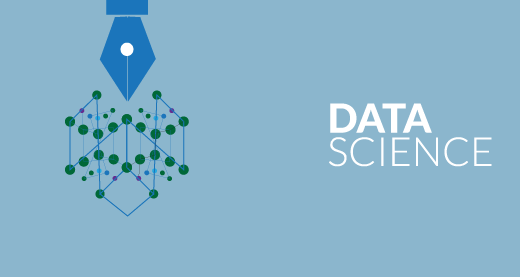
Data Science course is one of the most preferred career tracks right now. There is a reason for its hype. Well, it is because the fundamental focus of data science is such that it assists people in taking improved, faster decisions. It is not only the need of only a few industries from a particular section; rather it is needed across a plethora of industries; even the ones where decisions are automated for instance in retail, online shopping, and more.
Professional Data Scientist!
A large amount of unstructured data is not at all easy to interpret; hence, you need an inimitable skill set, some technical attributes and you need to develop useful auxiliary skills. You need to create the right balance of a variety of skills such as analytics, predictive modeling, organization skills and more than that, communication skills.
In addition to the above, to secure a rewarding job in the organization of your choice, you need to develop valuable and excellent coding skills. Efficiency in R programming language, SAS Statistical Analysis System, and Python programming language further aids your skills as an analyst or data scientist. It helps you to think sensibly in terms of algorithms, which allows you to manage irrelevant data better than before.
Role of a Data Scientist
The majority of data scientists in the industry have advanced training in statistics, computer science, and math. Their experience extends to mining, visualization, and information management of data. They have experience in data warehousing, cloud computing, and infrastructure design.

Data Scientist Enhances Business Value
1. Accurate Decisions by Officers and Management
An experienced data scientist can be like a strategic partner to the upper management of the organization as it ensures that the staff exploits their analytics’ competencies. While data scientist demonstrates and communicates about the valuable institution’s data, it is possible to create improved decision-making processes for the whole organization with the help of through tracking, measuring, and recording performance metrics.
2. Directing Actions On the Basis of Trends
For a data scientist, it is easy to explore and examine the data of an organization. After this, they simply recommend certain actions that develop the institution’s performance and eventually boost profitability.
3. Best Practices to Adopt While Challenging the Staff to Focus on Issues
It is essential for data scientists to ensure that the staff is knowledgeable with the organization’s analytics project and product. With this, they give training to their staff with the manifestation of the efficient use of the system to dig out insights and action taken. The focus of staff can address various key challenges of business, once office employees are able to understand the product capabilities.
4. Effective Decision Making with Evidence of Data-driven and Quantifiable
No doubt, data gathering and analyzing from different channels is leading the need to take high stake risks after the coming of data scientists. Moreover, it is easy to build models through existing data that imitate different potential actions. In this system, an organization can gain knowledge, which will bring the best business outcomes.
5. Testing these decisions
Half of the battle involves making certain decisions and more importantly implementing those changes. So, what about the other half? It is essential to know how those decisions have affected the organization. Here comes a data scientist! It pays to have somebody who can measure the key metrics that are associated with important changes and quantify their success.
What are the Objectives of the Data Science Course?
The Data Science Certification is designed to provide you with profound knowledge of a variety of data analytics techniques, which can be performed using R. This course is packed with real-life projects along with case studies.
• Mastering R language: The data science course gives a thorough understanding of the R-studio, R language, and R packages. You will learn different types of apply functions including DPR, perform data visualizations using the various graphics available in R and gain an understanding of data structure in R.
• Mastering advanced statistical concepts: This training course also includes a choice of statistical concepts such as logistic and linear regression, forecasting, and cluster analysis. One will also learn hypothesis testing.

What will you Learn in a Data Science Course?
• Gain an initial understanding of business analytics
• Install R, workspace setup, and R-studio, and learn about a range of R packages
• Understand how various statements are executed in R and master R programming
• Gain an in-depth knowledge of data structure used in R and learn to export/import data in R
• Understand, Define, and use the different DPYR functions and apply functions
• Identify with and use a mixture of graphics in R for data visualization
• Gain a basic understanding of several statistical concepts
• Use the hypothesis-testing method to make business decisions
• Use non-linear and linear regression models and classification techniques for data analysis
• Learn a choice of association rules along with Apriori algorithm
• Learn clustering methods including DBSCAN, K-means, and hierarchical clustering
Who should take the Data Science Training Course?
There is a rising demand for skilled data scientists across all industries. This is the reason why this data science certification course is well-suited for participants at every level of experience. We recommend this training particularly for these professionals:
• Software developers who want a career switch into data science as well as for analytics
• IT professionals who are looking for a career switch into analytics and data science
• Anyone with a real interest in the data science field
• Professionals working in business and data analytics
• Graduates who want to build a career in data science and analytics
• Experienced professionals want to harness data science in their fields
With certification for data science training course, you can become an expert in data analytics. You will master data exploration, predictive analytics, and descriptive analytics techniques with the R language. With this amazing course, you will get concrete practice by implementing a variety of projects in the domains of retail, healthcare, insurance, and others.
